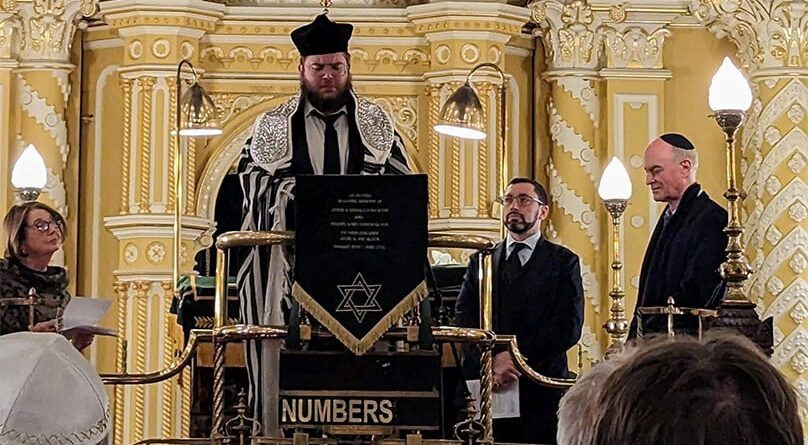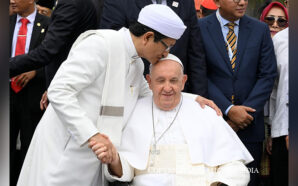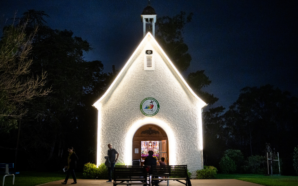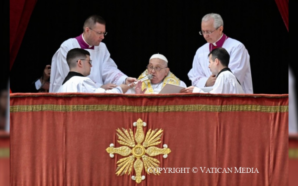Members of the Christian, Jewish and Muslim communities have united to pray there will never again be another Shoah, at a commemoration held at the Great Synagogue in Sydney to mark the 80th anniversary of one of the greatest acts of Jewish heroism in history—the 1943 Warsaw Ghetto Uprising.
The Shoah commemoration on 30 May was organised by the NSW Council of Christians and Jews and featured an address by the highly respected historian of the Holocaust, Emeritus Professor Konrad Kwiet, currently resident historian at the Sydney Jewish Museum.
Professor Kwiet reflected upon the formidable courage shown by the Jewish community in Warsaw in April and May 1943 in their resistance to Nazi aggression.
“Escaping the ghetto walls was impossible. The Polish and German police had sealed off the ghetto and the only escape route was through the sewer system,” Professor Kwiet explained in his moving address.
“Its man-holes were covered in rubble and yet every now and then, the Germans dropped in poisoned gas.
“Children were often sent into tunnels of the sewer system to transport food in and out of the ghetto and many didn’t survive the journey.”
“To survive, many were forced to drink the thick, slimy water of the sewer. Babies were suffocated or poisoned and many people died from the fumes of poisoned gas entering from the man-holes above.”
At least 7000 Jews died fighting or in hiding in the Warsaw ghetto, another 7000 were captured by German forces and Polish police and approximately 42,000 Jews were sent to forced labour and concentration camps, many of them murdered.
“In the face of genocide, it became clear to many Jews that they had nothing to lose by resisting Nazi aggression,” Professor Kwiet said.
“They could either await certain death at the hands of their murderers, or rebel and die. Therefore the goal of the uprising was not rescue. It was a last-ditch resistance against death.”
Professor Kwiet said the Jews’ suffering during the Shoah can teach enduring lessons today.
“The responsibility for the crime of exterminating the Jewish people falls firmly on the perpetrators, but indirectly it weighs on the whole of humanity,” he said.
“With few exceptions, there was no protest, no solidarity, no empathy and no protection offered by the population at large and public silence reigned virtually undisturbed as the Jews were taken from where they lived, incarcerated into ghettos and concentration camps and then transported to extermination sites.”
Following Professor Kwiet’s address, the lights of the synagogue were extinguished and representatives from a number of Christian churches joined with members of the Jewish community to read a series of short prayers and reflections, followed by the lighting of six candles in memory of the six million Jews who were killed in the Shoah.
Students from SCEGGS Darlinghurst were led by Rev Paul Weaver from the Anglican Church in the lighting of the candles alongside Holocaust survivors, Joe Symon and Peter Nash.
Rabbi Menachem Feldman sang a moving Jewish memorial prayer and members of the ecumenical choir, the Mater Chorale, sang psalms as the names of the notorious death camps, the scene of so much misery and horror, were read aloud to those gathered for the Commemoration.
As candles were lit, all the faiths present united in a prayer for peace in Ukraine, Sudan and the troubled nations of the Middle East, and said the words together “Never again!” praying that never again will there be a Shoah, that racism will become a thing of the past as we remember that we are all children of the one God.
With thanks to Catholic Weekly and Michael Kenny, where this article originally appeared.








